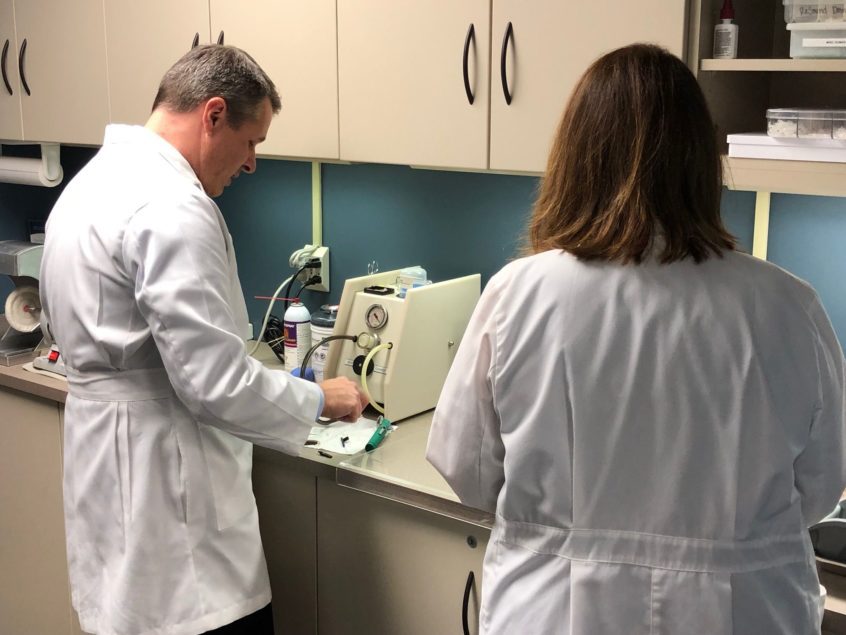Hearing aids can be a significant investment in your health. Evidence continues to mount that they reduce the risk of depression, cognitive decline and social isolation. But how long should you expect your hearing aids to last before it’s time to buy a new pair?
According to national statistics, most hearing aids have an average lifespan of three to five years. Lots of factors can affect that though. These include the make and model of your hearing aids, changes in your hearing, and most importantly, how well you take care of them.
At Associated Audiologists, the average lifespan of our patients’ hearing aids is five to seven years. We have found our patients’ hearing aids last longer because they routinely follow up with our audiologists for checks and cleaning, and they are very careful to take care of their hearing aids.
To get more life out of your hearing aids, ask your audiologist to show you how to properly care for them. Here are some tips:
- Follow recommended and routine hearing aid check-ups with your audiologist. Generally, cleanings are recommended between every 6-10 months, depending upon your unique needs.
- Check the batteries. Batteries should last 1 to 2 weeks, depending on the technology you use, such as streaming calls, and how many hours a day you wear them. You will hear the best when the batteries are at full strength. Always keep spare batteries with you.
- Clean your hearing aids often. Hearing aids are high-tech electronic devices that are exposed to the heat and humidity of the human body daily. Add to that the fact that people who wear hearing aids are more likely to produce heavier amounts of ear wax, and hearing aids have to be pretty tough!
- A cleaning brush probably came with your hearing aids, but if you can’t locate it, a soft bristle toothbrush will also work to gently remove earwax or dirt from your hearing aids. Be sure to also open up the battery compartment and remove any debris you find.
- Replace the wax guard or wax trap in your hearing aids regularly (in-the-ear, receiver-in-ear, and in-the-canal). This keeps them from getting blocked by wax, which can affect sound quality. Your audiologist should tell you how often to replace them and show you what to do. He or she may provide replacements, or you can purchase them.
- Remember, water is your hearing aids’ worst enemy! That’s why it’s not a great idea to keep your hearing aids in the bathroom. This is typically a humid environment with steam from the shower, plus, there are lots of places where you could drop your hearing aids in water—the sink, the tub, the toilet. Pools, saunas and the gym also are not ideal environments for hearing aids.
- Put your hearing aids in after you’ve completed your grooming routine. Hair sprays and gels can “gum up” the works of your hearing aids, reducing their lifespan.
- If you do get your hearing aids wet, use a dry storage kit to dry them. Associated Audiologists sells these devices. They range from a simple desiccant and container that absorbs moisture from your aids, to an electronic device that circulates air around the hearing aids. If you don’t have one, ask your audiologist.
- Don’t use a hair dryer or put your hearing aids in the microwave or oven to dry them out—this will damage the devices.
- If, in spite of taking all these steps, you feel like your hearing aids aren’t performing up to par, try giving them a good cleaning and replacing the batteries.
If those steps don’t help, see your audiologist. Have your hearing and your hearing aids checked on a regular basis. This will help you get more life out of your investment in hearing aids.
Associated Audiologists offers Urgent Ear same-day repairs, when possible. Patients can call the clinic where we usually see you for availability of an audiologist.
We also offer some online hearing aid support on our website. Visit hearingyourbest.com.



